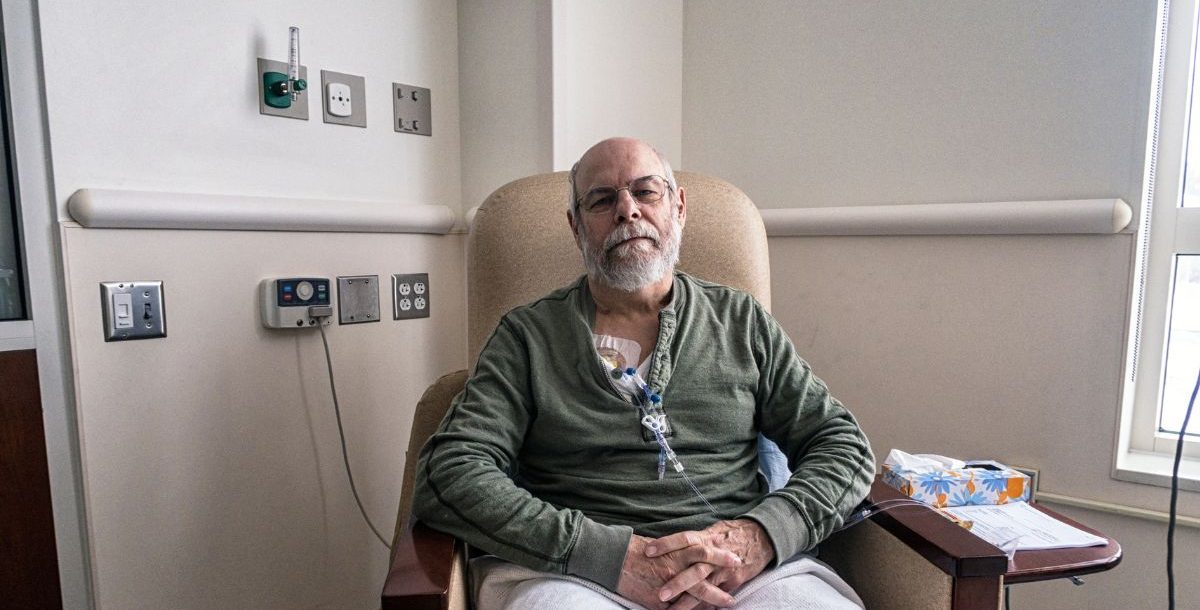Cancer is the second-leading cause of death of men in the United States, followed by heart disease. The number of new cancer cases in men, especially prostate cancer, have been on the rise recently. Knowing about these cancers in men, risk factors and what you can do to help prevent them – or detect them early – can make all the difference. Learn about the most common cancers in men and what to look out for.
What are the three most common cancers in men?
Skin cancer
Skin cancer is the most common type of cancer. A leading cause of skin cancer is repeated and unprotected skin exposure to ultraviolet (UV) rays from the sun or tanning beds. You should remain aware of moles and spots on your skin and discuss any changes with your health care provider.
If you have a family history of skin cancer, history of irregular moles or you sunburn easily, you should pay attention to any changes on your skin.
There are several different types of skin cancers, with melanoma being one of the most dangerous. Dermatologists developed an “ABCDE” rule to help identify potential signs of melanoma:
- Asymmetry – melanoma lesions are often oddly shaped
- Border – it has an irregular border
- Color – it has varying color
- Diameter – usually is around six millimeters wide
- Evolving – quickly changes on the skins
One of the best ways to protect yourself against skin cancer is to use a broad-spectrum sunscreen with an SPF of at least 30 on all exposed skin when you’re spending time outdoors and reapply every two hours – or more frequently if you’re sweating or coming out of the water. If you’re going to be in the sun, be sure to wear a hat or sunglasses and take breaks in the shade when you can.
Prostate cancer
Other than skin cancer, prostate cancer is the most common cancer in men. The chance of getting prostate cancer goes up as men get older, and most prostate cancers are found in men age 65 and older. It’s rare for men under the age of 40.
Signs of prostate cancer may include:
- Blood in urine or semen
- Difficulty urinating, including a weak flow or the need to urinate more often
- Pain the hips, back or chest
- Weakness or numbness in the legs or feet
It’s important to discuss with your health care provider if you experience any of these symptoms. Men should also discuss with their provider when to be screened for prostate cancer – especially if you are over the age of 50 – based on your health, family history and more. This screening will involve a prostate-specific antigen (PSA) blood test and possibly a brief rectal exam.
Colorectal cancer
Colorectal cancer is cancer that begins in the colon or rectum – usually with a polyp or small growth on the lining of the colon or rectum. Physical inactivity, being overweight, smoking, heavy alcohol use and a family history of colorectal cancer or polyps are a few of the factors that may increase risk for colorectal cancer.
Men age 50 and older should start regular colorectal cancer screenings – one of the best weapons against colorectal cancer for early detection or prevention by finding and removing polyps before they turn into cancer. It’s easiest to treat when caught early.
Some of the symptoms of colorectal cancer may include:
- Blood in stool
- Change in bowel habits, including diarrhea or constipation
- Fatigue
- Pain in your abdomen
- Rectal bleeding
- Unexpected weight loss
Discuss with your health care provider if you begin to experience any of these symptoms. And if you are at a higher risk for colorectal cancer based on family history or any other factors, talk to your provider about when you should start screening.
Are there other types of cancer men should be aware of?
Lung cancer can be common in men, and although smoking tobacco is the leading cause of lung cancer, not everyone with lung cancer are people who smoke. The most important thing you can do to prevent lung cancer is not smoke and avoid breathing in other people’s smoke. Furthermore, men age 50 and older who smoke or have smoked in the past should consider undergoing an annual lung cancer screening.
Men are also nearly four times more likely to be diagnosed with bladder cancer than women. About nine out of 10 people who are diagnosed with bladder cancer are over the age of 55. Research has shown a connection between a sedentary lifestyle and the risk of bladder or kidney cancer.
And finally, pancreatic cancer is another health concern for men. Symptoms of this type of cancer include abdominal pain, unintended weight loss, yellowing of the skin and/or eyes as well light-colored stools and dark-colored urine.
Why is early detection of cancer so important?
Regardless of the type of cancer, early detection and successful treatment can significantly improve a person’s chances of remission.
Early detection screenings aim to identify specific pre-cancer or cancers before they start to develop symptoms. When identified early, cancer is more likely to respond to treatment and can result in greater survival rate. Significant improvements can also be made in the lives of cancer patients when cancer is detected early and avoid delays in care.
What you can do to help reduce your cancer risk
An unhealthy lifestyle is one of the leading causes of cancer in men. So, making healthy lifestyle choices and getting regular screenings can help to decrease cancer risks.
Here are few ways The American Cancer Society recommends helping lower your risk of many common kinds of cancer:
- Drink alcohol in moderation.
- Follow a healthy eating pattern that includes fresh fruits and vegetables and decreases consumption of processed foods.
- Get moving with regular physical activity.
- Know your family history and risks.
- Maintain a healthy weight.
- Protect your skin from UV rays.
- Stay away from smoking/using tobacco.
- Visit your primary care provider for regular health check-ups and cancer screenings.
Now that you know more about the most common cancers in men, learn about the cancer care services we provide at Mercy Health.






